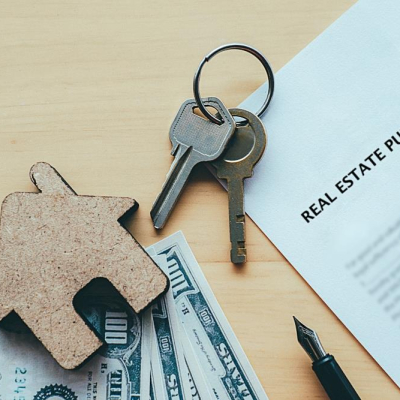Choosing a Place to Live in South Africa

Finding a place to live in South Africa is typically something most expats enjoy, just because the houses are so beautiful and because there are hundreds of options. Whether you settle in one of Johannesburg’s sprawling suburbs or somewhere along the beautiful coastline of Cape Town.
Before you get started, however, it is a good idea to make some key decisions regarding your new home: What size do you need, whether you’d like to rent or buy, whether you prefer to live in a walled-in security estate or in a free-standing home or apartment complex, and which location with regards to work, school, and recreation is the best fit for your family.
Location, Location, Location
As anywhere in the world, you need to carefully consider where to settle, or you might not end up being very happy. Most expats will not have an option as to which city to live in, though some companies do give a choice.
South Africa’s main commercial centers are Johannesburg, Cape Town, and Durban, in that order, with some smaller outposts sprinkled throughout. Johannesburg is by far the largest economic engine of the country – of all of Africa, in fact – meaning that anybody engaged in any kind of business typically has to spend time there one way or another. It also serves as a main hub for the rest of Africa and even the Middle East, which makes it a top choice for most multinational companies.
Many South Africans, preferring the beautiful scenery of the Cape, commute up to Johannesburg on a weekly basis, but living in Johannesburg permanently has its own advantages, namely the pleasant dry Highveld weather and friendly people it is known for. And let’s not leave out Durban, of smaller commercial import but a serene and relaxed place with its stunning coast and subtropical climate.
Where is the school? How is the traffic?
Once you’ve settled on a city, the next step will be to figure out where your office is, which school to send the children to, and where best to position yourself close to both without compromising any of the other factors important to you. Traffic is a hassle in all three metropolitan areas but probably worst in Johannesburg, where some people easily spend three hours a day commuting. You might be best served by locating somewhat close to both work and school, or you may make the decision to settle next-door to either one, eliminating all traffic hassles for one parent yet burdening the other with all of them. Taking under consideration the many excellent South African schools rather than just the few international ones, as most expats are tempted to do, will greatly increase your options in this regard.
Aside from office and school, recreation options may also factor into your decision. Estate living often has plenty on offer, such as golf, tennis, swimming, squash, or fitness classes. Settling on the outskirts of town will be of advantage if you like to take weekend trips or engage in more adventurous sports, such as cross-country motorcycling or horse riding. Given the heavy traffic in most urban centres of South Africa, making a conscious choice of where to live based on all these factors will be very important in guaranteeing your happiness.
Will We Be Safe?
The topic of crime and security is probably the one most debated and fretted about among prospective expats in South Africa. Partly this is based on fact and partly on an overly negative reputation, but there is no doubt that as an expat you will want to select a home providing the best possible security for your family.
All South African homes are outfitted with some security measures such as walls and electric fences, but the levels vary widely and the specific suburb you select will make a difference. This is where your estate agent’s experience will be invaluable. As a general rule, certain areas such as Hillbrow in Joburg’s CBD are to be avoided altogether, although even these have changed for the better in recent years. The so-called security estates where spacious homes are clustered behind forbidding walls and professional firms control access and provide round-the-clock security are considered the safest and also provide the most comfortable lifestyle for families with children, but even among those there are differences. Free-standing houses, especially in the older more established parts of the city can be beautiful and conveniently located, however are considered to be somewhat less safe.
To find out more about the different suburbs and neighborhoods of your chosen city, it is best to hire an estate agent who will consult you further on the various places to live, including security and other factors. Overall, most expats making a home in South Africa enjoy the many perks of living in this beautiful country, without worrying too much about crime.
Renting versus Buying
Most expats new to South Africa choose to rent a home, either because of the short-term nature of their assignment or because of requirements imposed by their companies. However, once you have familiarized yourself with the area, buying a home is a good and often more cost-effective alternative.
You will find a wide variety of housing on offer for rent as well as sale, from small apartments to big mansions. Some areas are more heavily targeted by expats and while this might appeal to you in terms of your social life, you should also be aware that it might drive up the price.
Rents can range from R5,000 to over R50,000 per month, depending on the size and location of the home. There is also usually a monthly homeowner’s fee or levy for security and landscaping expenses, which can add up to another R2,000.
Home purchase prices cover a wide range as well, from as low as R500,000 up to well over R10,000,000. Websites such as www.property24.com are a good starting point to get an idea of what’s on offer throughout South Africa.
If you choose to rent a home rather than buying one, you will often have the option of renting an already furnished home, a great alternative if you don’t want to go through the hassle of packing up and shipping a container. One downside of renting, whether furnished or not, is that your rental agreement is typically limited to two years, and the owner may opt for reselling or moving into the home, forcing you to start your search again after what will seem like no time at all. This is a situation many expats in South Africa have found themselves in.
Living in a beautiful South African home, enjoying mild evenings around the braai on your patio or spending the Christmas holidays lounging poolside, is a dream come true for many expats. Just make sure you don’t fall in love with the first house you look at, but rather carefully base your decision on all of the above factors.
By Sine Thieme, an American repat just returned from a three-year assignment in Johannesburg with her husband an four children, where she loved the weather, the people, going on safari, and the fact that you never quite knew when exactly 'just now' would be.
- South Africa: Expat in JHB looking for other SA expats for PhD
- South Africa: EasyExpat.com is looking for networkers/helpers for...
- South Africa: EasyExpat.com recherche des animateurs pour notre...
- South Africa: Les nouveaux expats en Afrique du Sud se présentent
- South Africa: New Members in South Africa: Welcome!
- My Life Abroad -
A selection of expat stories

"A fun compulsive read!"
J. Matcham, Amazon
"I strongly advise people ready to live abroad to read this book!"
Patrice, Amazon

 The Ultimate Guide: Buying Real Estate as an Expat
The Ultimate Guide: Buying Real Estate as an Expat  Basics to Real Estate Investing for the Long Term
Basics to Real Estate Investing for the Long Term 
 AGS Worldwide Movers
AGS Worldwide Movers Fexco payment solutions
Fexco payment solutions 1stMove Car Shipping
1stMove Car Shipping